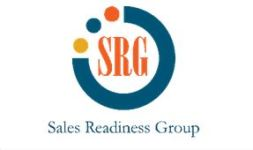ATD Blog
Successful Sales Performance Starts With Clear Expectations
Fri Nov 18 2022

Content
Managing sales performance is arguably the most important skill for sales managers. The process follows these four steps:
Managing sales performance is arguably the most important skill for sales managers. The process follows these four steps:
Content
1. Communicate expectations.
1. Communicate expectations.
Content
2. Monitor and manage specific behaviors.
2. Monitor and manage specific behaviors.
Content
3. Monitor results.
3. Monitor results.
Content
4. Provide regular feedback.
4. Provide regular feedback.
Content
Unfortunately, many managers tend to hyperfocus on the third area, results, without understanding that results look backward and are contingent on following the other steps.
Unfortunately, many managers tend to hyperfocus on the third area, results, without understanding that results look backward and are contingent on following the other steps.
Accountability Starts With Clear Expectations
Content
Communicating expectations clearly is the most overlooked step; it’s also the most critical for success. Does your sales team understand what you want them to do (behaviors) and what you want them to achieve (results)?
Communicating expectations clearly is the most overlooked step; it’s also the most critical for success. Does your sales team understand what you want them to do (behaviors) and what you want them to achieve (results)?
Content
Sales managers often confuse what they think they’ve communicated with what their sales reps take away from their discussion. This is because managers often use vague language or poorly drafted emails that aren’t specific enough for recipients to understand and internalize. For example, a manager may send an email that says, “We’re tracking behind this quarter and need to take our game to the next level.”
Sales managers often confuse what they think they’ve communicated with what their sales reps take away from their discussion. This is because managers often use vague language or poorly drafted emails that aren’t specific enough for recipients to understand and internalize. For example, a manager may send an email that says, “We’re tracking behind this quarter and need to take our game to the next level.”
Content
Unfortunately, this statement is almost meaningless. At most, a sales rep will understand that results are not as good as they need to be and that they need to work harder. While this may be true, the email lacks clarity and purpose. Additionally, it doesn’t address what specific behaviors are expected from each individual rep.
Unfortunately, this statement is almost meaningless. At most, a sales rep will understand that results are not as good as they need to be and that they need to work harder. While this may be true, the email lacks clarity and purpose. Additionally, it doesn’t address what specific behaviors are expected from each individual rep.
Set Clear Expectations With These Guidelines
Content
To avoid this type of confusion, managers should make sure that they clearly set expectations by using these six communication guidelines:
To avoid this type of confusion, managers should make sure that they clearly set expectations by using these six communication guidelines:
Content
1. Personalize communication and be realistic. The message should specifically address the individual sales rep. General messages can be vague or interpreted as applying to others.
1. Personalize communication and be realistic. The message should specifically address the individual sales rep. General messages can be vague or interpreted as applying to others.
Content
2. State the desired results. Specifically communicate what you want them to achieve.
2. State the desired results. Specifically communicate what you want them to achieve.
Content
3. Include the behaviors required to produce these results. These are the specific actions that, if performed well, should lead to the desired results.
3. Include the behaviors required to produce these results. These are the specific actions that, if performed well, should lead to the desired results.
Content
4. Define metrics for assessment, including the timeframe. It should be clear how you will measure performance and over what period of time.
4. Define metrics for assessment, including the timeframe. It should be clear how you will measure performance and over what period of time.
Content
5. Check for understanding. Ask the sales rep to recap their understanding of your expectations.
5. Check for understanding. Ask the sales rep to recap their understanding of your expectations.
Content
6. Follow up in writing. Send out an email recapping your communication, making sure it adheres to rules 1–5.
6. Follow up in writing. Send out an email recapping your communication, making sure it adheres to rules 1–5.
Content
Remember that the mutual goal is to achieve results while maintaining an upbeat and encouraging message.
Remember that the mutual goal is to achieve results while maintaining an upbeat and encouraging message.
Content
Let’s revisit our previous example email. A sales manager has a better chance of helping reps achieve their quotas if they use the kind of personalized communication in this example:
Let’s revisit our previous example email. A sales manager has a better chance of helping reps achieve their quotas if they use the kind of personalized communication in this example:
Content
To achieve your quarterly sales goal of $500,000, you will need to close an additional $267,000 by the end of the quarter (December 31). To accomplish this goal, I would like you to conduct in-person meetings with at least five of the seven customers in the “agreement” stage of your sales pipeline by next Friday (December 12).
To achieve your quarterly sales goal of $500,000, you will need to close an additional $267,000 by the end of the quarter (December 31). To accomplish this goal, I would like you to conduct in-person meetings with at least five of the seven customers in the “agreement” stage of your sales pipeline by next Friday (December 12).
Content
Given your history of success with customers (70 percent close rate of opportunities in the agreement stage), this should allow you to exceed your goal if you can get these meetings set up quickly. Please let me know if this makes sense and what steps you will take following this discussion.
Given your history of success with customers (70 percent close rate of opportunities in the agreement stage), this should allow you to exceed your goal if you can get these meetings set up quickly. Please let me know if this makes sense and what steps you will take following this discussion.
Content
Let’s plan on reconnecting next Monday (December 8) to review where you stand on appointments, discuss the specific goals for each meeting, and how I can help.
Let’s plan on reconnecting next Monday (December 8) to review where you stand on appointments, discuss the specific goals for each meeting, and how I can help.
Content
In a sales world laser-focused on results, it’s easy to lose sight of the importance of clear communication that sets expectations. However, by clearly setting expectations, we can hold our sales reps accountable and proactively help them succeed.
In a sales world laser-focused on results, it’s easy to lose sight of the importance of clear communication that sets expectations. However, by clearly setting expectations, we can hold our sales reps accountable and proactively help them succeed.

